Source Photos (L-R): Ruby Ray/Getty Images; Ian Dickson/Redferns; Randy Holmes/ABC via Getty Images; Paul Natkin/Getty Images; Daniel Boczarski/Redferns
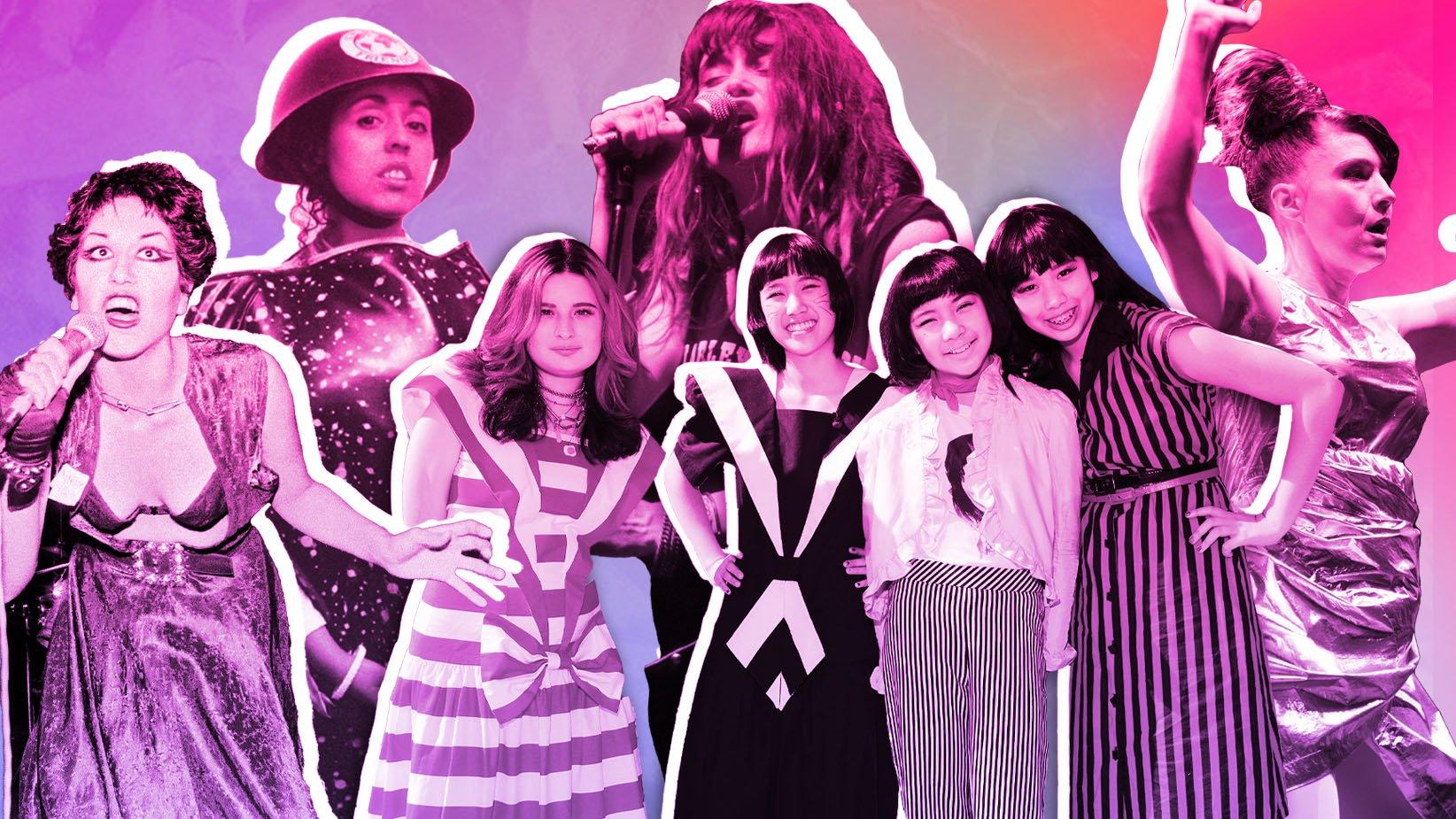
list
5 Women Essential To Punk: Exene Cervenka, Poly Styrene, Alice Bag, Kathleen Hanna & The Linda Lindas
GRAMMY.com highlights some of the culture-shifting women who changed the course of punk, spotlighting one band who is moving the genre forward.
Challenging the status quo musically, lyrically, and visually, the pioneering women of punk made sure they were seen and heard. Punk rock didn’t require stellar musicianship or record-company backing; for the powerful women making noise in the genre, it was about overthrowing old tropes of women in music occupying sweet or subservient positions. These pioneers spewed and shared ideas, passion, poetry and individualism.
Late ‘70s New York and London were two of the flashpoints of the nascent punk music scene that welcomed women into the fold. In NYC, Patti Smith was a pioneer who remains quintessential, along with the more New Wave-leaning musicality of Debbie Harry and Blondie. In the U.K., Poly Styrene, Siouxsie Sioux, and the Slits made waves on their own terms. Punk's DIY ethos allowed girls and women everywhere to rebel against the macho excesses of ‘70s stadium rock and '80s hair metal.
Since its late-‘70s birth, punk has seen numerous iterations, and as an ethos and genre, it continues to thrive. And women remain an important part of the musical conversation. From the from Riot Grrrl movement kickstarted in the Pacific Northwest in the early ‘90s until the present day, numerous lineups, including Arrow DeWilde of Starcrawler and the Linda Lindas, have taken up the mantle, bringing punk into a new era.
GRAMMY.com highlights some of the pioneering, culture-shifting women who have changed the course of punk and one promising, up-and-coming band at the forefront of the genre’s future.
Listen to GRAMMY.com’s official Women Essential to Punk playlist on Spotify, Apple Music, Amazon Music, and Pandora. Playlist powered by GRAMMY U.
Exene Cervenka
Exene Cervenka performing live in 1983 | Photo: Chris Walter/WireImage
Featuring the shared vocals and lyrics of Chicago-born poet Exene Cervenka and John Doe, X’s 1980 debut LP kicked Los Angeles’ ‘70s soft rock/ hippie era to the curb. Cervenka's enviable thrift-store style, pointed harmonies, bold vocals and personal, clever lyrics made her an unimpeachable icon of the L.A. music scene.
X songs including "Your Phone’s Off the Hook But You’re Not," "I Must Not Think Bad Things," "4th of July," plus stellar covers of "Wild Thing" and the Doors’ "Soul Kitchen," and the quartet’s best-known tune, "Los Angeles" are a small part of Cervenka’s prolific output.
In addition to eight X albums, including the most recent, 2020’s Alphabetland, Cervenka was in the country-leaning project The Knitters, while the first of several solo albums solo to date, 1989’s Old Wives,' was pointedly a record "for and about women," she told the Los Angeles Times.
Auntie Christ and the Original Sinners are among the singer/guitarist’s other musical projects, while Cervenka concurrently pursued poetry with collaborators including LA’s "unofficial poet laureate" Wanda Coleman and Lydia Lunch. As a fine artist, the X singer has been part of at least a dozen exhibitions and mounted a one-woman show, "Exene Cervenka: America the beautiful."
Proof of punk’s —and Cervenka’s — endurance and influence? In 2017, the GRAMMY Museum at L.A. Live honored the lineup with an exhibit titled "X: 40 Years of Punk in Los Angeles," which showcased the uncompromising vision that took Cervenka and the band from grimy punk clubs to Dick Clark’s "American Bandstand" and Rolling Stone accolades.
Poly Styrene
Poly Styrene, lead singer of the pioneering punk group X-Ray Spex, in 1977 | Photo: Daily Mirror/Mirrorpix/Mirrorpix via Getty Images
An oral history of Poly Styrene’s life, DayGlo!, published in 2019, includes stories from the X-Ray Spex singer’s many admirers, including the Sex Pistols’ Glen Matlock, The Slits' Tessa Pollitt and Sonic Youth’s Thurston Moore.
Born Marianne Joan Elliott-Said, Poly Styrene was intensely individualistic, leaving home at 15, hitchhiking to music festivals and living in crash bands around her native U.K. In 1976, within a year of making her first demo, Elliott-Said saw the Sex Pistols, anointed herself Poly Styrene and founded X-Ray Spex. She was 19.
The band’s 1978 debut, Germ-Free Adolescents, has horns punctuating the speedy guitars and Poly Styrene’s cocky vocals. Still-memorable songs like "Germfree Adolescence," "Art-i-Ficial," "Identity" and "The Day The World Turned DayGlo" ensure the band’s legacy, which includes influencing bands from Romeo Void to the Waitresses.
Though Styrene died from cancer at the age of 53, daughter Celeste Bell (singer of Celeste Dos Santos and The Tabloid Queens) has helped cement her mother’s place in punk history. The award-winning documentary Poly Styrene: I Am a Cliché, came out in 2021, and was co-directed by Bell. In the doc, Styrene's personal diaries are narrated by actress Ruth Negga, an artist who shares Poly Styrene’s Irish-African heritage and bold spirit.
Alice Bag
Alice Bag performing at the Mabuhay Gardens in 1978 | Photo: Ruby Ray/Getty Images
The title of Alice Bag's 2011 memoir — Violence Girl, From East LA Rage to Hollywood Stage: A Chicana Punk Story — only hints at the stories the singer/songwriter, musician, author, artist, educator and feminist has lived.
As lead singer and co-founder of the Bags (also featuring bassist Patricia Morrison) the vocalist born Alicia Armendariz found herself at the forefront of the original LA punk scene. The Alice Bag Band was featured in the Penelope Spheeris documentary The Decline of Western Civilization before Bag when onto stints in other groundbreaking lineups, including Castration Squad, Cholita and Las Tres.
Bag’s speaking engagements, music, art and writing further the initial inroads made as young punk singer ‘70s and ’80s. Bag’s second book, 2015’s Pipe Bomb for the Soul in 2015 joined her memoir as a staple in gender, musicology and Chicana studies courses across the country.
As a solo artist, Alice Bag’s self-titled 2016 debut album, featuring the sharp single "No Means No" and an updated feminist take on the "girl group" anthem, "He’s So Sorry," was named one of the best albums of 2016 by AllMusic and Pitchfork. Two more solo albums and acclaim followed, including the punky 2020 single "Sister Dynamite," with the trenchant lyrics "she’s so tired of fragile masculinity."
She continues to inspire and influence: In 2018, the City of Los Angeles officially recognized Alice for her "profound influence on music and the punk rock scene in Los Angeles and her activism for the LGBTQ community and speaking out against social injustice."
Kathleen Hanna
Kathleen Hanna performing at the 2018 Sundance Film Festival | Photo: Dia Dipasupil/Getty Images
With more than 24 million Spotify streams, Bikini Kill’s "Rebel Girl" is an enduring anthem for women of all ages and stages. When the tune dropped 1993, Bikini Kill singer Kathleen Hanna was already a voice for third-wave feminism thanks to her collaborations with like-minded young women on ideas, music and zines that launched the Riot Grrrl movement.
That call to action for young women to embrace feminism, especially via the punk rock scene, arose alongside grunge, and still resonates powerfully more than 30 years later. By the time the band broke up in 1996, the frontwomen had a plethora of side projects and guest appearances with top indie musicians among her many accomplishments.
In addition to spawning and empowering many bands, writers and artists, Hanna’s own commitment to art and activism remains strong. In 1991, she performed with Bikini Kill a Pro-Choice Rally at the National Mall in Washington, D.C.; in 2011 she gave a speech at a Planned Parenthood "Stand Up for Women's Health" Rally.
A documentary about Hanna titled The Punk Singer chronicled her life and work up until its 2013 release. Fronting the groups Le Tigre and the Julie Ruin still with a DIY ethos, Hanna also reformed Bikini Kill for its first show in 20 years in 2019… and had the current wave Riot grrrls, irrepressible L.A. lineup the Linda Lindas, opening. The future’s unwritten, but the end is nowhere near.
The Linda Lindas
The Linda Lindas as guests on "Jimmy Kimmel Live!" in 2021 | Photo: Randy Holmes/ABC via Getty Images
By the time the Linda Lindas’ Los Angeles Public Library performance of "Racist Sexist Boy" went viral in May 2021, the three teen (and one pre-) musicians were anointed with the mantle worn by previous all-female punk band groundbreakers including Bikini Kill.
It was late April 2019 when Amy Poehler saw the Linda Lindas open for Bikini Kill and recruited them for her 2020 film Moxie, where they perform Kathleen Hanna and co.’s iconic "Rebel Girl." In 2020, the Linda Lindas wrote a song for the Netflix documentary The Claudia Kishi Club.
"Racist Sexist Boy" tells the true story of an experience Mila, the band's drummer, had when a schoolmate made a racist comment before the COVID-19 pandemic. When the tune became a social media hit, all the right people (Tom Morello, Thurston Moore) took notice, and the band scored a deal with respected punk label Epitaph.
Self-described as "Half Asian / Half Latinx. Sisters, cousins and friends who play music together because it’s fun!" the Linda Lindas "channel the spirit of original punk, power pop, and new wave through today's ears, eyes, and minds." Ranging in age from 11-17, the quartet have already played with punk legends the Dils, the Gears, and Phranc. Their debut LP, the aptly titled Growing Up, came out in 2022, leading to appearances on Late Night with Jimmy Fallon, gigs in New York, and a tour with Japanese Breakfast and the Yeah Yeah Yeahs.
The Linda Linda appear to have a firm hold on their career and position, as a sort of musical cri de Coeur in the lyrics to "Growing Up" makes clear: "We'll talk 'bout problems we share / We'll talk 'bout things that ain't fair / We'll sing 'bout things we don't know / We'll sing to people and show / What it means to be young and growing up."
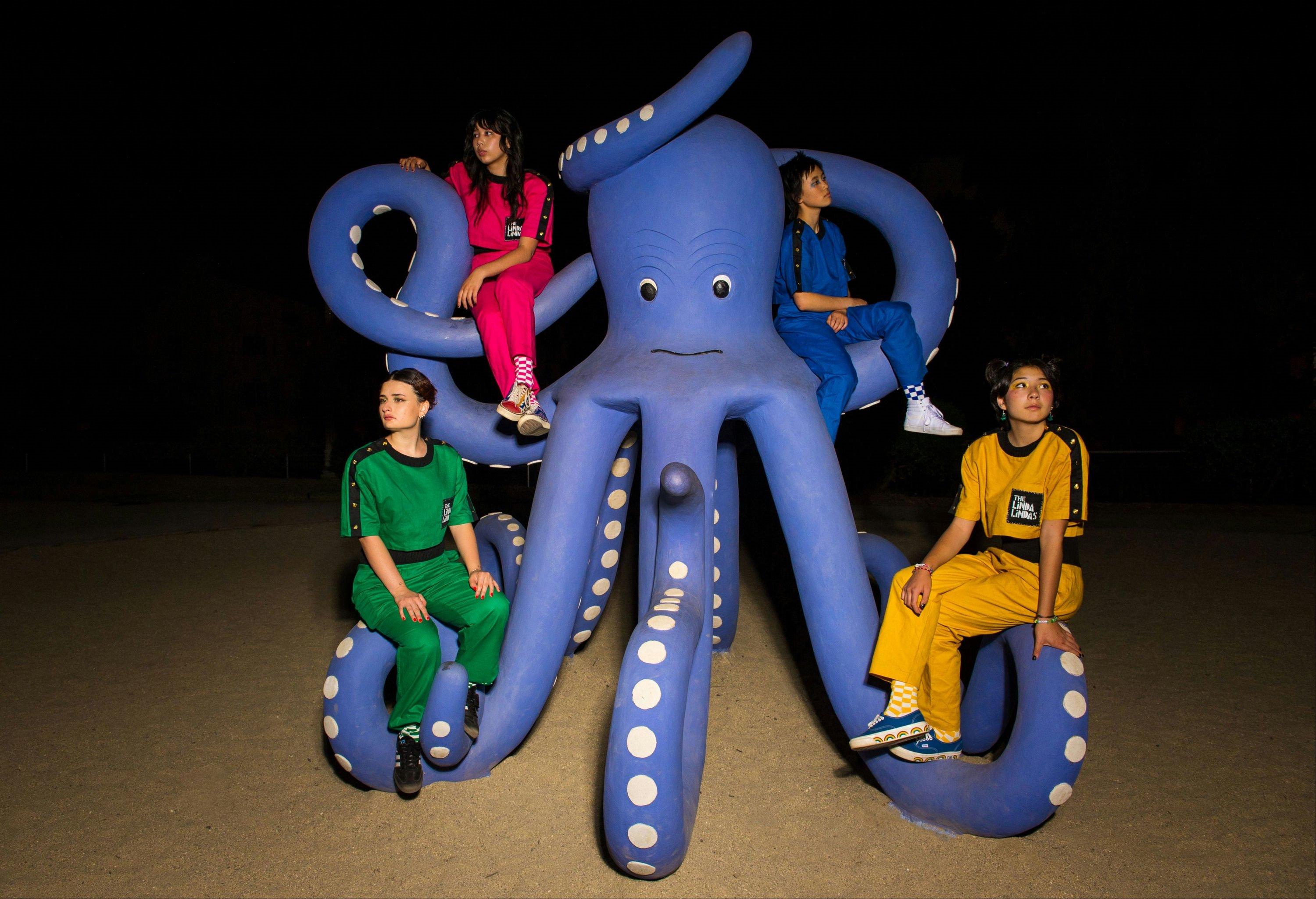
Photo: Jessie Cowan
interview
The Linda Lindas Talk 'No Obligation,' Cats & Working With Weird Al
After releasing their second album and touring with the likes of Green Day and the Smashing Pumpkins, the young-but-mighty quartet are ready to keep winning listeners over: "We’re excited to show off how we have grown."
The members of the L.A. punk band the Linda Lindas are all under 20 years old but, in many ways, they’re already old hands at the music industry.
The quartet formed back in 2018 for a performance at a music festival called Girlschool USA when guitarists Bela Salazar and Lucia de la Garza were 14 and 13, respectively; bassist Eloise Wong was 12 years old and drummer Mila de la Garza was only 10. It was supposed to be a one-off appearance, but they enjoyed performing too much to stop.
A 2021 performance of their two minute punk song "Racist, Sexist Boy" at the Los Angeles Public Library went viral, and the next year they released their first self-titled album on Epitaph. They hit Outside Lands and other big festivals. A few years later, their song "Growing Up" was featured on the Inside Out 2 soundtrack, and this summer they toured with Green Day, Smashing Pumpkins and Rancid on a highly anticipated national stadium tour.
That’s a lot of career before for young musicians who have yet to graduate from high school (or from college, in Bela’s case). But the Linda Lindas are done yet: In October the band released their second album, No Obligation, on Epitaph, and are hopeful that they'll head out on their first headline tour. In the venerable tradition of DIY punk bands past, the album is less an evolution from their bare bones debut than it is a continuation, with more crunchy, three-chords-and-a-prayer riffs backing songs about being stressed out, saying what you mean, finding your own path, and telling harassers to cut it out.
The Linda Lindas spoke with GRAMMY.com about recording with Weird Al Yankovic, their songwriting process, and what their cats are up to now.
The interview has been edited for length and clarity.
You’re kind of music veterans now, right? How has that affected the recording of this album?
Eloise: I think we were more confident in our instruments and more confident in the recording process, and also more confident in our songwriting. Because the first record [has] the first songs that we'd ever written.
Mila: We were basically more confident in general!
Eloise: But I'm super excited for it to be out, and I'm super excited to play new music for more people.
Mila: I mean, we've only been around for like, six years, and when we started the band, that's also when we started learning our instruments. So our first record, we knew how to play our instruments, but I would definitely say that we're better at them now.
Lucia: We didn't really fully understand the concept of going through an album, putting the production on it, putting it out. We were kind of just "Oh, we're just gonna record the songs and put them out."
So we’re excited to show off how we have grown. Not necessarily putting down the first album, but just like, you know, showing that we are older, more grown. And that's partly due to all the opportunities that we've gotten since the first one was put out.
On the album, "Yo Me Estreso" is about stress and "Cartographers" is kind of about, indecision, or not being sure what direction to go in. Has making the new album been a stressful or confusing time?
Bela: I wouldn't say it's been stressful. I think it's just day to day things that happen in life, and like, making music is an outlet to just talk about what's going on in our lives.
Eloise: Yeah, what's great about being in a band is that we have this outlet to express our stress and we have somewhere to put those feelings. And I think that's really special.
"Yo Me Estreso" is in Spanish, obviously; I just wondered how you decide which language to write in?
Bela: We write mostly in English. I'm the only one that speaks Spanish. So if I write a Spanish song, then maybe there'll be one in there. But if I don't, there's no Spanish song.
Did "Yo Me Estreso" just come to you in Spanish?
Bela: Yes and no. I mean, I hate talking about my feelings. I have a really hard time doing that. And writing this song in Spanish felt like a way that I could talk about my feelings without exposing myself to the world and letting everybody know what the heck is going on in my life. It felt a little bit more intimate, rather than putting myself out there.
You collaborated with Weird Al Yankovic on that song. How did that happen? Are you fans?
Eloise: Oh, my god.
Mila: How can you not be?
Eloise: Well, basically, Bela had already written this song, and we were like, "Oh, it would be cool if there was accordion on it." And I guess he was just the first accordion player that came to mind. We were like, "This is not gonna happen." But he said yes!
And for the music video, he even brought his own suit and his own hat. He was prepared and super pro.
Bela: He brought a specific accordion that was correct for the genre. I guess he had a bunch of different ones, and he brought the one that was correct. So it was cool.
Mila: He was very nice and very professional.
Lucia: He’s going on tour now. We feel like we should try to see him, because I feel like that'd be so fun. Everyone that says they've seen him live, they say it’s a really amazing show.
Since we’re talking about tours, you toured with Green Day. What was that like?
Eloise: That tour was so fun. Everyone was super nice on the tour. All the bands were super nice, all the crews were super nice. We had catering, and I loved that. Just pile up as much food as we could eat.
And then the most fun part about the tour was that we only played like, 20 minutes. So then right after our set I could just go wipe the cat whiskers off — because I wear cat whiskers on stage — and then go into the crowd for Rancid and watch that. And we got to watch Smashing Pumpkins, and we got to watch Green Day. IWho else gets to watch those bands every other day, you know? I feel so lucky to have been on that tour, and I had such a great time.
Lucia: It was just a super great environment and such great music every night. It was really an honor to be on that stage, for sure. Cool crowd, too!
Were you touring over the summer? I’m just wondering how you balanced it with school.
Eloise: It started in the summer and then it went into some of the school year.
Lucia: We tried to do both.
Eloise: Yeah, we tried to keep up with the work, because after shelter in place [for Covid lockdowns], a lot of the work is posted online, so it's easier to access than it might have been otherwise. But, yeah, just kind of trying to do both to our best ability.
So I thought we might talk about some of the other songs on the album. "Stop" is a song about bullying or harassment. Could you talk about how you wrote that?
Mila: We were just writing, and I think at the time at school, one of my really good friends was being bothered by these other two classmates. And it wasn't cool. So [raises her palm up]…Stop.
How do you write? Do you write individually? As a group?
Lucia: That was a group one.
Mila: I remember this very specifically. We were sitting on the floor in our back house, and we were just songwriting. And then we moved on from one idea to, oh, what should we do next? And I was like, oh, there's this thing that's happening.
So are most of your songs sort of written collaboratively?
Lucia: No, we've written in every way. Any combination. We write individually sometimes, and we write together. Sometimes, we start individually and it ends up together. And sometimes it starts together and ends up individually. There's no formula. There's no step-by-step process that we have. It's just kind of whatever happens, happens.
Could you talk about writing "Excuse Me", which is a song that talks about being stereotyped or profiled?
Eloise: I wrote that. I think it’s about things that people expect you to be. And sometimes, when you don't conform to that, people are uncomfortable, and it just kind of winds up making everyone uncomfortable.
But it's cool that I have the band to write a song about it and I have an excuse to yell about it to a bunch of people.
So what's next for you all now that you've released this album? Are you going on tour?
Lucia: We’ve never really done our own tour for more than five shows or something. We’ve toured a lot with other bands; but for a band that doesn’t tour very much, we do a lot of touring as an opening band.
Mila: We haven't done a proper headline tour yet, and we really want to. [Crosses fingers.] Hopefully.
Lucia: It’s going to happen. And we’re excited to have the album out there and see where the songs go from here. Because they're going to evolve now that we're doing them live. They're going to sound different from the studio. And so it'll be cool to see what journeys they all take on their own.
So where are you planning to tour? In California? Or elsewhere?
Bela: Anywhere! Wherever they’ll take us!
Eloise: Invite us somewhere, please!
Mila: Europe, South America, Asia…
Okay, it’s kind of silly, but I did want to ask…we have a Siamese cat, so "Monica," your song about your Siamese cat from your first album, is one of my favorite songs. I'm just wondering what's up with Monica these days?
Bela: She's doing good! She’s kind of old. Both Monica and Nino are pretty old now, but she went on a walk about five minutes ago. That's why I was kind of late. I had to take her to go get some grass. My cats are indoor/outdoor cats but she needed some grass and she likes the sun, so she went outside to sunbathe.
How old is she now?
Bela: Both Monica and Nino are 13. Well, Nino's 13 and she's 12, turning 13 in March. So they’re up there.
Were they the cats in your video for "Growing Up"?
Bela: No those were fake cats. I mean, not fake cats. Actor cats.
Mila: They were professionals.
Bela: Though my cats are probably way better behaved than those cats.
Eloise: Working with those cats was such a weird experience!
Mila: The trainers would tell the cats, "Stay still!" But then we wanted them to act like cats, and not just stand there like [sits rigidly].
Bela: For that video, a family friend of ours did these wigs for the cats. So my cat, Nino, was the model for all the wigs, and he just was sitting there, just letting her do whatever. And then when she tried to put the wigs on the real cats, they were just knocking them off. It was crazy.
Mila: One time we played a headline show in Michigan and someone gave us bracelets, and one of them said, "Golden" on them.
Eloise: Because it's an inside joke that we have from our childhood. We had this game where we were cats. And one of us was named "Golden."
Mila: And yeah, we were freaked out, because it was like, where did you get that from? And then we realized that it was from that video, because we named the cats.
Is there anything else you’d like people to know about the album?
Bela: Stream it? Please. Buy the record. Buy a CD, anything.
Eloise: Yeah, we're super excited to have new music out, and we're super excited to play new music, and I don't know. It’ll just be fun.
Explore More Alternative & Indie Music
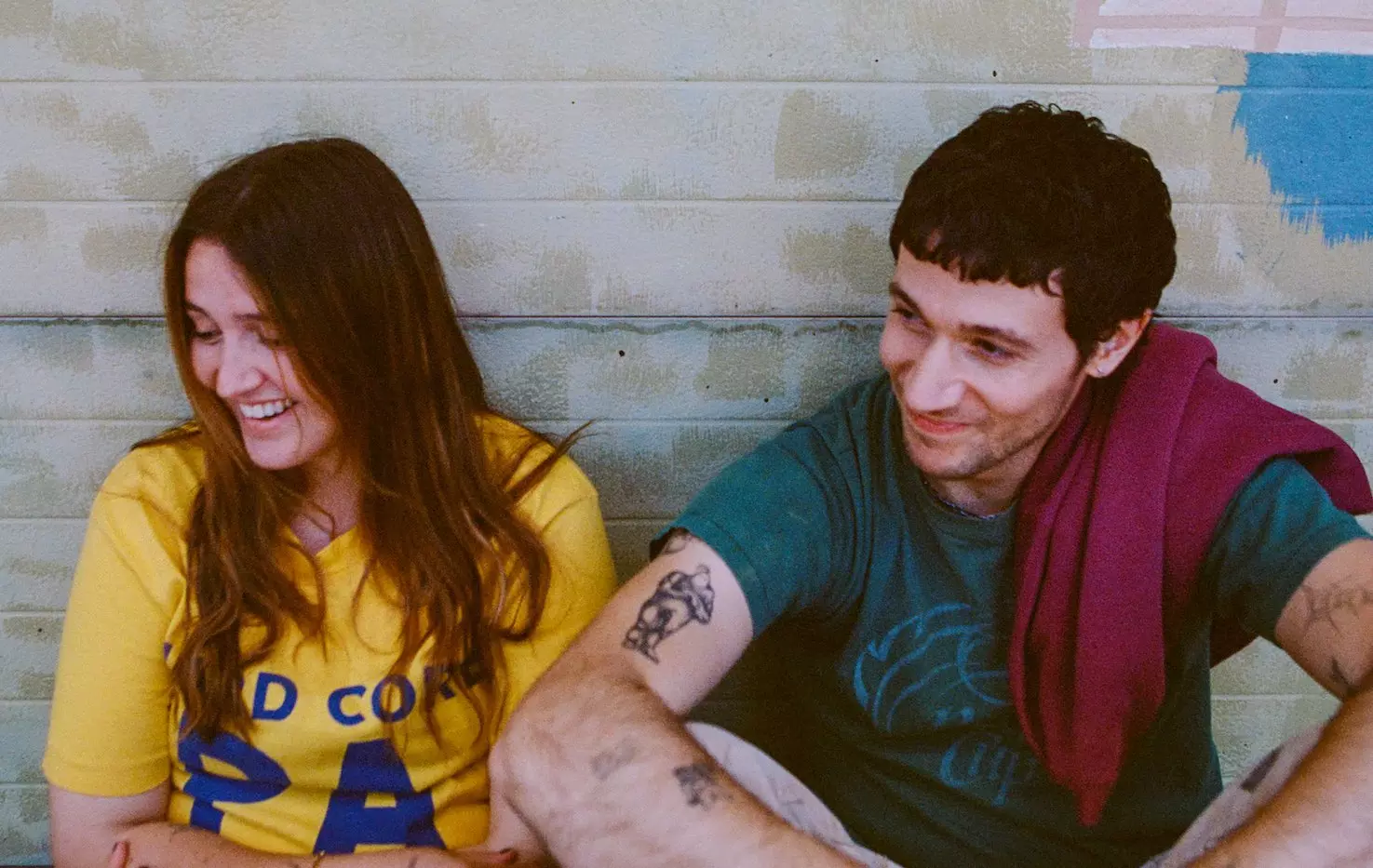
Chelsea Cutler & Jeremy Zucker On Why 'Brent iii' Is "A Nice Way To Close The Page" On Their Musical Partnership
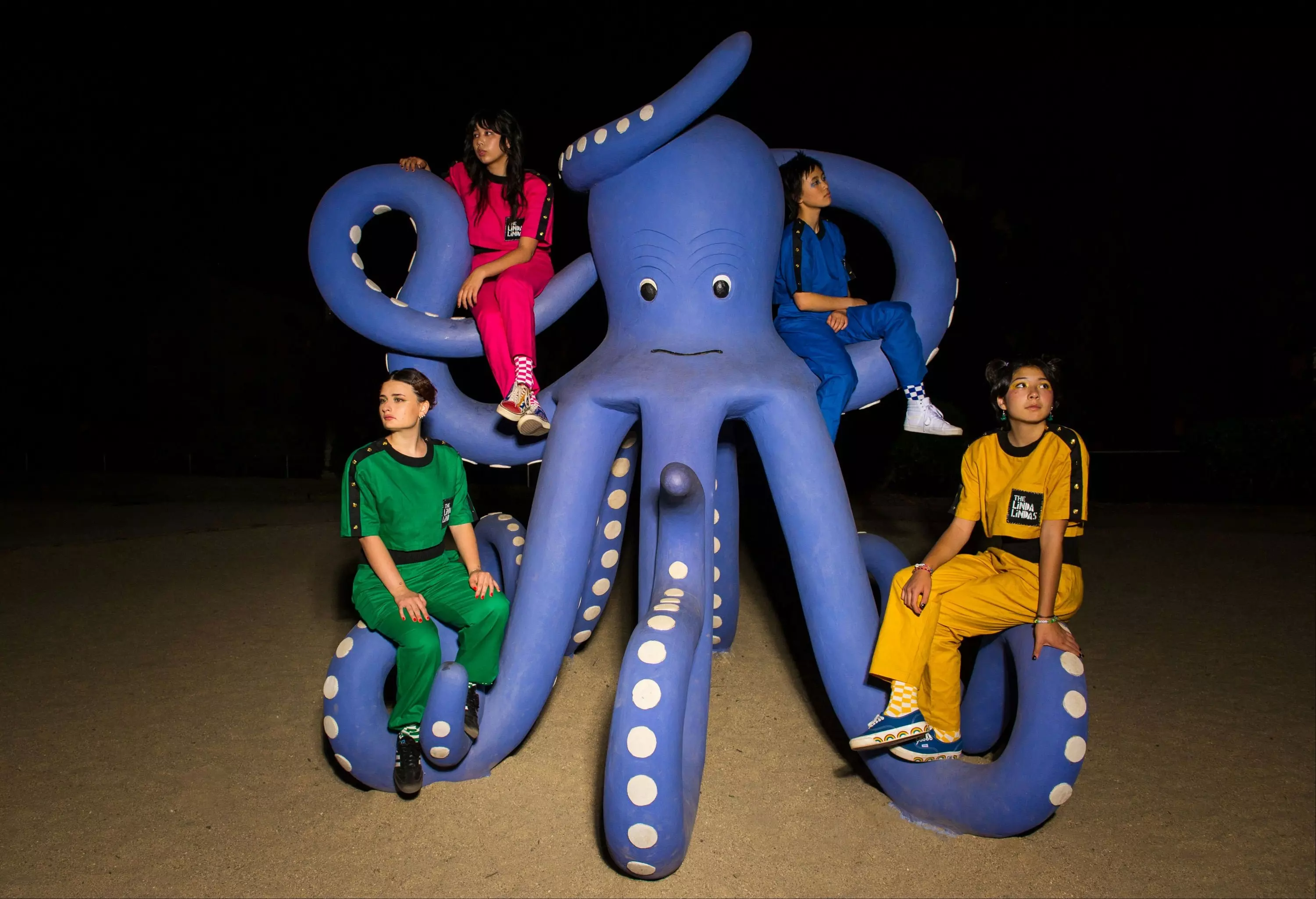
The Linda Lindas Talk 'No Obligation,' Cats & Working With Weird Al
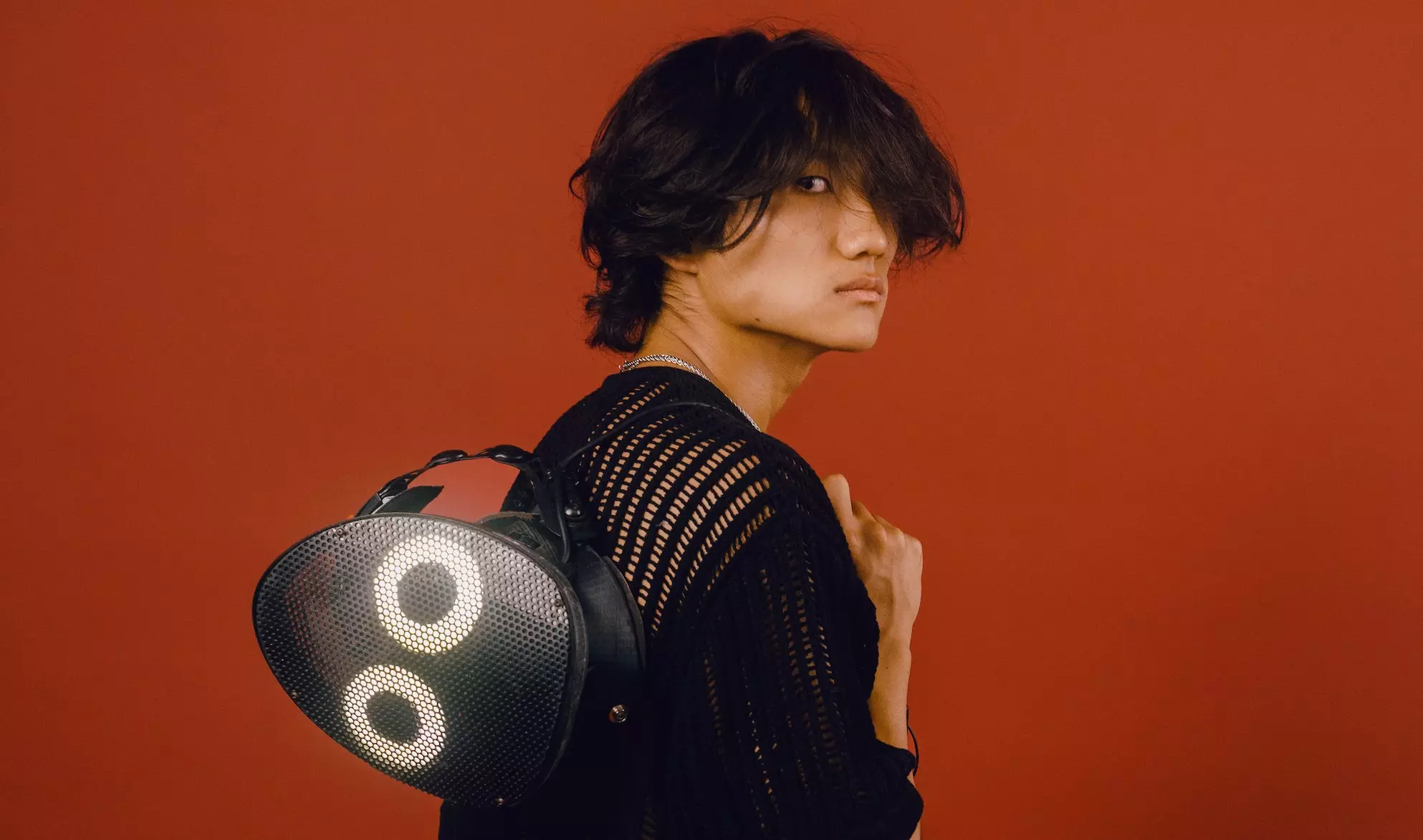
Why BoyWithUke Is Already Retiring His Alter Ego
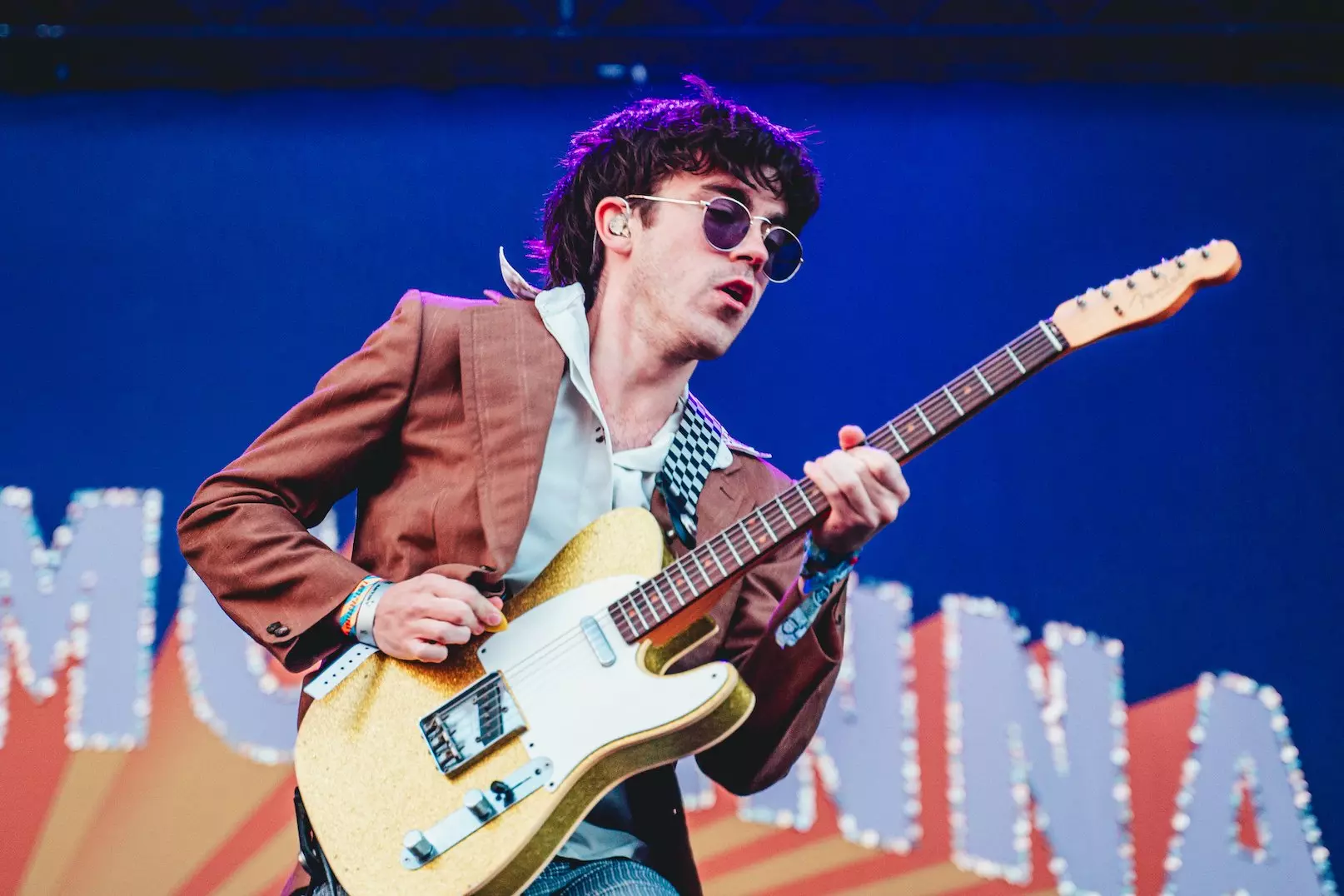
Get To Know Declan McKenna, The British Rocker Shaking Up The Indie Scene

Radiohead Performs "15 Step" At The 2009 GRAMMYs

Photo: Jeff Kravitz/FilmMagic
video
GRAMMY Rewind: Kendrick Lamar Honors Hip-Hop's Greats While Accepting Best Rap Album GRAMMY For 'To Pimp a Butterfly' In 2016
Upon winning the GRAMMY for Best Rap Album for 'To Pimp a Butterfly,' Kendrick Lamar thanked those that helped him get to the stage, and the artists that blazed the trail for him.
Updated Friday Oct. 13, 2023 to include info about Kendrick Lamar's most recent GRAMMY wins, as of the 2023 GRAMMYs.
A GRAMMY veteran these days, Kendrick Lamar has won 17 GRAMMYs and has received 47 GRAMMY nominations overall. A sizable chunk of his trophies came from the 58th annual GRAMMY Awards in 2016, when he walked away with five — including his first-ever win in the Best Rap Album category.
This installment of GRAMMY Rewind turns back the clock to 2016, revisiting Lamar's acceptance speech upon winning Best Rap Album for To Pimp A Butterfly. Though Lamar was alone on stage, he made it clear that he wouldn't be at the top of his game without the help of a broad support system.
"First off, all glory to God, that's for sure," he said, kicking off a speech that went on to thank his parents, who he described as his "those who gave me the responsibility of knowing, of accepting the good with the bad."
Looking for more GRAMMYs news? The 2024 GRAMMY nominations are here!
He also extended his love and gratitude to his fiancée, Whitney Alford, and shouted out his Top Dawg Entertainment labelmates. Lamar specifically praised Top Dawg's CEO, Anthony Tiffith, for finding and developing raw talent that might not otherwise get the chance to pursue their musical dreams.
"We'd never forget that: Taking these kids out of the projects, out of Compton, and putting them right here on this stage, to be the best that they can be," Lamar — a Compton native himself — continued, leading into an impassioned conclusion spotlighting some of the cornerstone rap albums that came before To Pimp a Butterfly.
"Hip-hop. Ice Cube. This is for hip-hop," he said. "This is for Snoop Dogg, Doggystyle. This is for Illmatic, this is for Nas. We will live forever. Believe that."
To Pimp a Butterfly singles "Alright" and "These Walls" earned Lamar three more GRAMMYs that night, the former winning Best Rap Performance and Best Rap Song and the latter taking Best Rap/Sung Collaboration (the song features Bilal, Anna Wise and Thundercat). He also won Best Music Video for the remix of Taylor Swift's "Bad Blood."
Lamar has since won Best Rap Album two more times, taking home the golden gramophone in 2018 for his blockbuster LP DAMN., and in 2023 for his bold fifth album, Mr. Morale & the Big Steppers.
Watch Lamar's full acceptance speech above, and check back at GRAMMY.com every Friday for more GRAMMY Rewind episodes.
10 Essential Facts To Know About GRAMMY-Winning Rapper J. Cole
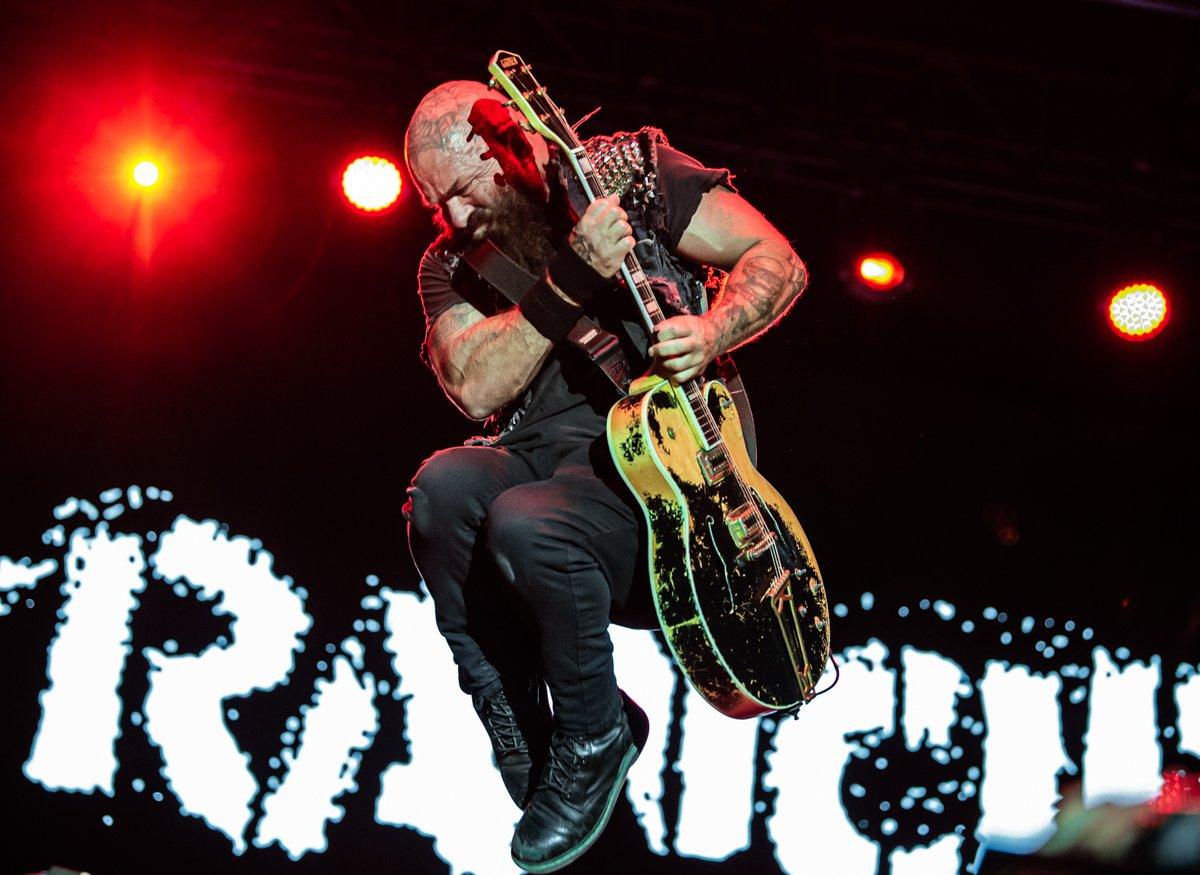
Photo: JoAnna Jackson
list
10 Mad & Memorable Moments From Punk Rock Bowling 2023
From Rancid fans literally breaking barriers, to farewell sets from FEAR and club shows featuring Save Ferris and Alice Bag, get back in the circle pit and revisit highlights from Punk Rock Bowling 2023 in Las Vegas.
Since its inception in 1999, the Punk Rock Bowling and Music Festival has become less about knocking down pins and more about making big musical strikes, showcasing the best in new and OG hardcore music.
Following COVID cancellations in 2022, PRB came back more raucous than ever this Memorial Day weekend. The four-day event felt very full circle too, with its usual mix of newer acts in early slots and legends as the sun went down.
The downtown Las Vegas event has grown with Sin City itself — especially the part of Vegas formerly known as the Old Strip, which is now the locale of choice for other big music fests including Life Is Beautiful and the rock and metal focused Sick New World.
Beyond the outdoor festival grounds, Punk Rock Bowling also felt like a reintroduction to Downtown Vegas. A plethora of punk shows were held at local clubs, while many of the big names playing the festival also made appearances as "tour guides" at the brand new Punk Rock Museum in the Arts District.
Everyone played their ‘hawks off, but some really made an impression on this writer. Here, GRAMMY.com shouts out the most memorable moments of what has become one of the world's premiere punk events.
Me First And The Gimme Gimmes Get Meta…And More
Me First and the Gimme Gimmes were the first band to ever play PRB back when it took place at local bars like Vegas’ Double Down Saloon — in 2023, they gave and gave. The super-group consisting of members from NOFX, Lagwagon and the Swingin Utters are known for rollicking punk covers of pop hits like Neil Diamond’s "Sweet Caroline" and Elton John’s "Rocket Man" and they served all the biggies during their main stage slot Saturday at PRB.
They also had a "secret show" at the Punk Rock Museum, where current bass player CJ Ramone did a guided tour prior to the set. The most meta part? The band played inside an exhibit — a replica of Pennywise’s garage practice room that was moved piece by piece and rebuilt by bassist and museum co-founder Fletcher Dragge. The Gimme Gimmes popped up at another surprise show at Fremont Country Club too, where they were joined by members of the Damned (also on the festival bill). Highlight track at all three weekend shows: an audacious cover of Paula Abdul’s "Straight Up!" complete with "Oh-oh-oh!" crowd sing-alongs.
Save Ferris "Come On" Strong
Punk Rock Bowling feels like an immersive experience when you attend the pre-parties during the week and late-night after-bashes. Many of these club shows feature bands on the festival bill in smaller settings, while others feature bands you can’t see anywhere else. At Thursday’s pre-party inside adjoining nightclubs Backstage Bar & Billiards and Fremont Country Club (FCC), a shining shindig was headlined by Save Ferris.
Singer Monique Powell’s saucy vocals were animated and elevated by the bouncing rhythms of her band, best-known for breaking out of the O.C. ska scene alongside No Doubt with hits like its vibrant cover of Dexy’s Midnight Runners’ "Come On Eileen," and for appearing in the teen classic 10 Things I Hate About You. Angelo Moore of Fishbone brought his side-project Dr. Madd Vibe to the venue the same evening serving some cool funkadelic-flared jazz stylings.
Alice Bag Is Nowhere Near Decline
Women were well represented at the festival this year. Alice Bag (a.k.a. Alicia "Alice" Armendariz), frontperson for L.A. hardcore legends the Bags, might be best known for appearing in Penelope Spheeris’ seminal punk documentary "Decline of the Western Civilization," but she’s maintained a career beyond film as well. Today, Bag is an author, educator and musician.
Bag and her band played a potent club set on Friday night at Fremont. Incorporating some Spanish songs into the mix and lyrics that deal with everything from sexual assault ("No Means No!") to ageism, the Bag band proved music with a message can still be escapist fun too.
Lee Ving Bids "Fear-Well" But Still Sounds Badass
FEAR’s Lee Ving may be older and greyer, but the ferocious frontman is no less imposing onstage, even with reported health problems. The 73-year-old singer (and actor, as seen in Clue and Flashdance) announced just last month that his band will stop touring in the near future due to health issues.
Ving touted the band’s "Fear-well Tour" and Punk Rock Bowling appearance as significant for this reason and he’s not the kind of guy to pull a Motley Crue retirement fakeout. In any case, Fear’s early outdoor set at PRB Saturday lived up to any hype; while Ving didn't move around very much, he still sounded sprite and spot-on during classics like "The Mouth Don’t Stop (The Trouble with Women is)" and "I Love Living in the City."
The Adolescents Growl For The Grown Ups
Southern California’s the Adolescents represent how punk has literally grown up, even as it holds on to its figurative youthful aggression. The O.C. punks formed back in 1980 and have gone through countless line-up changes over the years, but they seem unified in their seasoned years — especially after founding member Steve Soto’s death in 2018 (they played with a backdrop brandishing "Soto" in 2019 at PRB).
Singer Tony Cadena remains one of the most tempestuous frontmen in music, and his growl felt feral as ever at PRB 2023. After all, there’s still plenty to be enraged about in our current world. From the brutal refrains of "Lockdown America" (written in 2018 well before the pandemic) to the familiar sing-a-long friendly choruses of the KROQ hit "Amoeba" and the early classic "Kids of the Black Hole" (about Social Distortion frontman Mike Ness’ punk squat apartment when the scene was new), the Ads showed that they aren’t kids anymore. But neither are their fans — and we all still need a release.
L7 Top Our Hit List
Though they were the highest billed females on PRB, the thing that’s always made L7 so inspirational is the fact that their gender was and is beside the point.
After a long hiatus, they got back together in 2015 and have been active ever since, releasing new material and playing diverse shows and festivals. Often lumped in with "grunge" bands due to the era in which they emerged, the band has major punk leanings which they showcased with ease and lots of energy during their main stage set at PRB on Memorial Day and the night before at their intimate and very late night Fremont club show. And both sets solidified "S— List" as one of the best punk anthems of all time.
Fishbone Bring Boogie Back To Punk Rock
Punk Rock Bowling regulars Fishbone always brings a refreshingly upbeat, dancey vibe to the festival, and this year was no exception. Since forming in the '80s, the L.A. band have influenced everyone from the Red Hot Chili Peppers to No Doubt — and always emanates a joyful and jammy vibe on stage.
Seeing so many mohawked, patch-covered crust punks boogie to extended and reworked versions of Fishbone's most beloved numbers was quite the delight. Stand-outs at Saturday’s Monster stage show included "Alcoholic," "Pressure," "Bonin' in the Boneyard" and their biggest hit as a revelrous closer, "Party at Ground Zero."
The Exploited Explode On Stage
The Exploited are an essential punk band that many music fans might know of, even if they don’t know their material too well. It’s safe to say the Scottish band’s logos (a skull with a mohawk) are iconic, as the imagery perfectly reflects the darkness and destruction that early punk music sought to convey around the world.
During their Monday evening PRB set, the band, led by red-mohawked lead singer Wattie Buchan was defiant and debauched on stage… and it was a kick to watch. Meshing old-school street punk with the thrash-focused styles from later in their career, the Exploited kept the circle pit below them at the Monster stage whirling.
And despite the hate towards politics and religion in their lyrics ( i.e. "F— the System, "F— the USA"), their set ended with a real love fest as dozens and dozens of fans joined on stage for singing, hugging and mugging.
Rancid Offers Salvation After PRB Barricades Break
If there was one bummer moment at this year’s Punk Rock Bowling festival, it had to be when the barricades broke about six songs into Rancid’s headlining main stage set on Sunday night. The energy the band was building was pretty much destroyed, and though Lars Frederiksen and Tim Armstrong tried to keep the crowd entertained — even doing a couple acoustic numbers, including a ballad-y take on "Ruby Soho" — the repair break dragged on way too long.
Surprisingly, the spike-adorned audience did not riot nor fight, but there was yelling and boo-ing when a PRB rep came out on stage to ask for patience. But if anyone could come back from a lull like that, it’s the Northern California-bred punk rockers, whose music and style remains some of the catchiest of the genre, with ska and British rock influences infusing their noisy rants and swift tempos.
"Roots Radicals" and "Maxwell Murder" warmed up the show nicely until the imposed break and a slew of gems brought things back including "Salvation," "Fall Back Down,"" I Wanna Riot" (again, we’re thankful no one did), and probably their biggest hit, "Time Bomb." They even played "Soho" again, the right way, and debuted a new song, "Don’t Make Me Do It," from their forthcoming album Tomorrow Never Comes.
Suicidal Tendencies Prove They’re A Musical Institution
Though Dropkick Murphys did a fine job as the closing night act at Punk Rock Bowling on Memorial Day, they could have (and maybe should have) switched slots with Suicidal Tendencies, who were billed just before them. The Venice Beach outfit consisting of Mike Muir and some new, very young members on drums and bass (including Tye Trujillo, son of former ST/current Metallica bass player Robert Trujillo), came on like gangbusters and never quit for a second, except for when the infamously expressive Muir discussed the band’s journey and controversy over its name.
The set consisted of a full rendition of ST’s breakout Frontier Records self-titled release (though not in album order), including the still-relevant angsty favorite "Institutionalized" — a song that had the entirety of the festival screaming along with glee and capturing the spectacle on their cell phones. Two bonus tracks from the albums How Will I Laugh Tomorrow When I Can't Even Smile Today and Lights… Camera… Revolution! rounded out the wonderfully rowdy show that proved Suicidal was always more about life than death. Just like punk rock itself.
The Exploding Hearts' Terry Six Shares The Stories Behind 'Guitar Romantic'
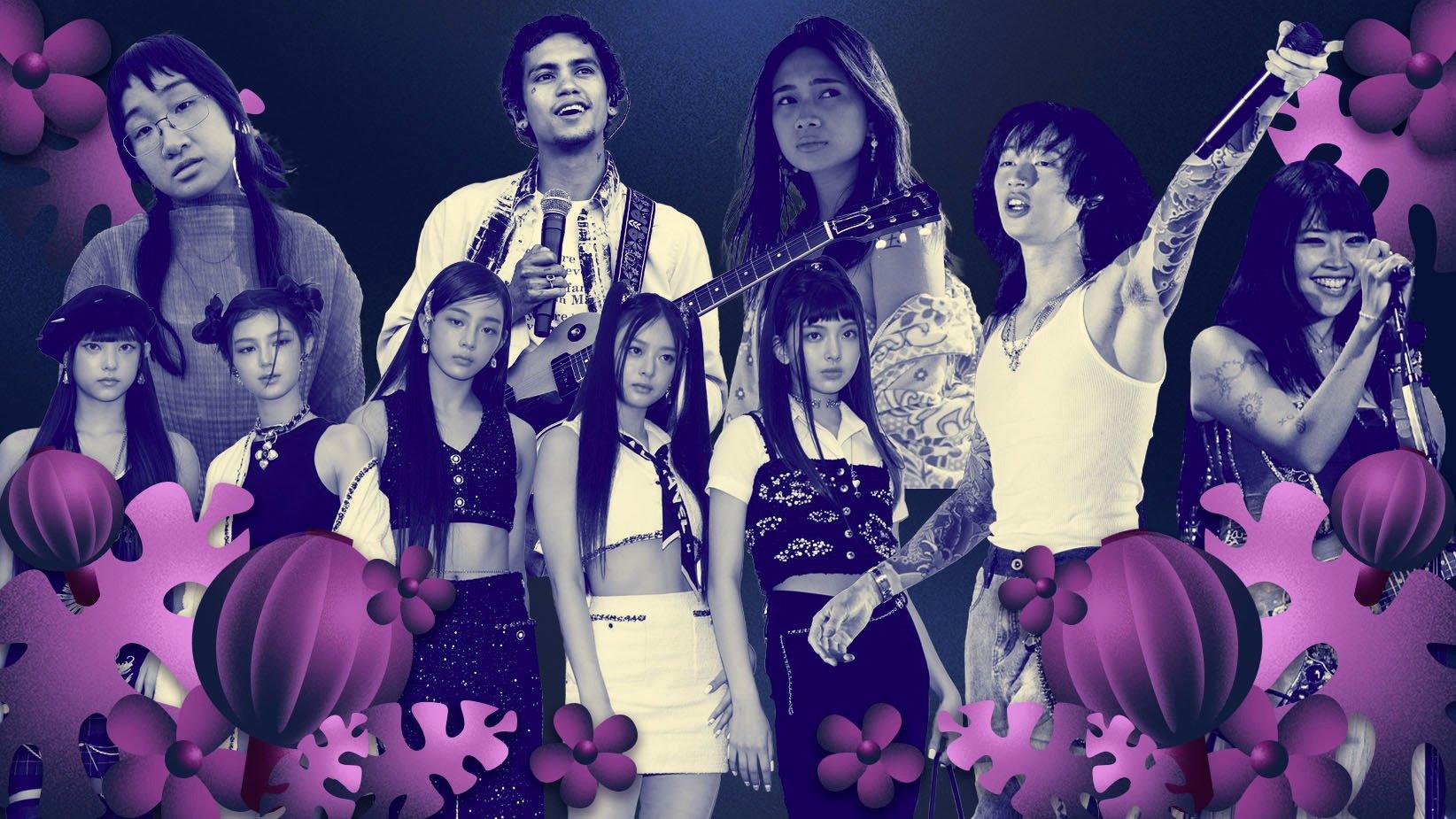
Photos (L-R): Dasom Han, Tim Mosenfelder/Getty Images, Gabriel Chiu, Rick Kern/Getty Images, Ethan Miller/TAS23/Getty Images for TAS Rights Management, Han Myung-Gu/WireImage
news
Celebrate AAPI Month 2023 With A Genre-Spanning Playlist Featuring BLACKPINK, Yaeji, Olivia Rodrigo & More
Spotlighting artists of Asian and Pacific Islander descent, GRAMMY.com honors AAPI Heritage Month this May with 44 songs by Japanese Breakfast, NewJeans, Keshi and many more.
As spring blossoms and May rolls around, AAPI Heritage Month reminds us to recognize and reflect on the talents of Asian American and Pacific Islander artists — across the music industry and beyond.
It's vital to celebrate diversity year-round, and May sparks additional dialogue about reshaping spaces to be more inclusive, especially within industries that are traditionally difficult to break into. Today, the music community views difference not as an obstacle, but an opportunity to celebrate individual and collective identity.
While 2023 marks 60 years since the first Asian American GRAMMY winner, AAPI creatives have been making waves in the music community for centuries. Whether you're raging to Rina Sawayama's enterprising electropop or vibing out with NIKI's soulful indie musings, AAPI artists are continuing to shape contemporary genres like never before.
In celebration of AAPI Heritage Month, GRAMMY.com compiled an original playlist to honor AAPI musicians' creativity and novelty. Take a listen to the playlist featuring more than 40 trailblazing creatives on Spotify, Apple Music, Amazon Music and Pandora.
